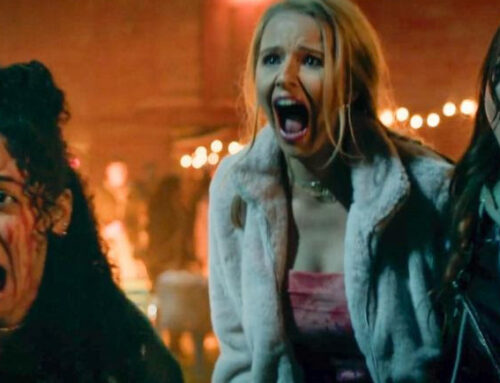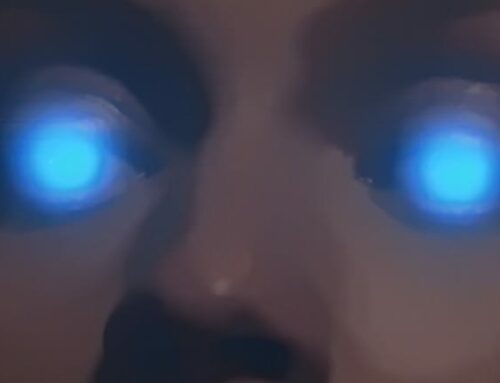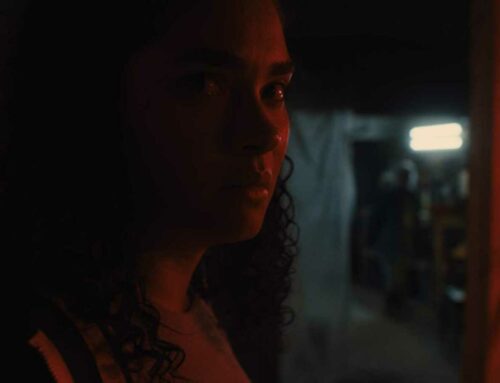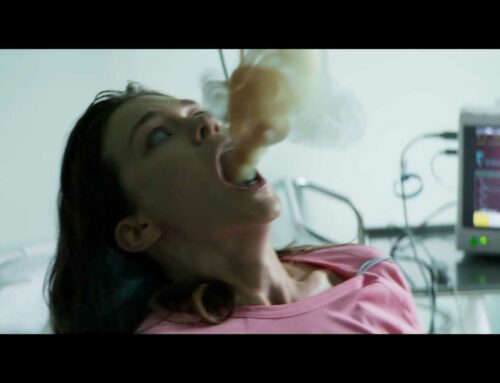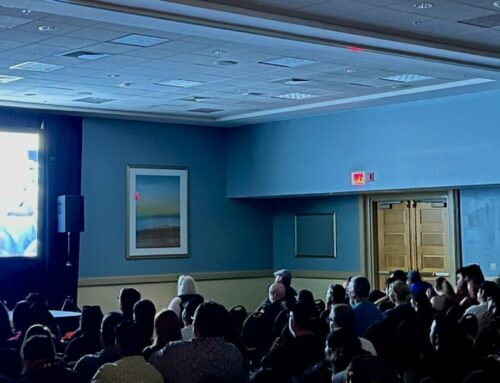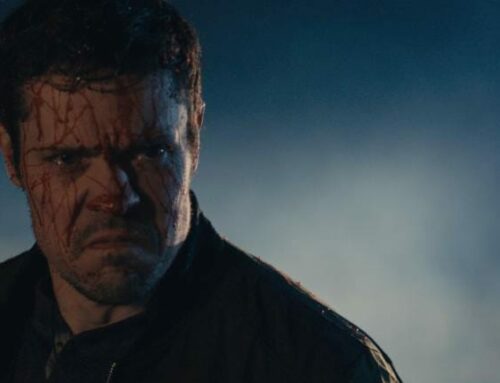With the amount of media produced with the intent to break it, most people are familiar by now with the concept of the fourth wall, an imaginary invisible boundary that separates audience from drama. The edge of the stage, the page, the screen – all of these are fourth walls that keep a story contained within its box, seemingly unaware that it’s a story being observed for the entertainment of others. The best illustration of it is theatre, where even surrounded by live people, a story can only ever progress as it was written to, though the players are entirely unaware. Unless, of course, they’re not. When an actor suddenly looks up, sees the audience, talks to them, brings them into their world, the illusory fourth wall is suddenly broken altogether and ceases, at least for a time, to exist.
In her short film, The Fourth Wall, director Kelsey Bollig sets out to question whether the fourth wall exists at all. Following a not-so-young-anymore actress (Lizzie Brocheré) in a production of Shakespeare’s A Midsummer Night’s Dream, the film’s opening credits are about the best of the fourth-wall-breaking to actually happen.
As a film, The Fourth Wall is fine, but it’s not the grand deconstruction of tropes I think Bollig intended it to be. For it to work that way, I don’t think the film format works at all. Move it to a theater, really play with the format, and genuinely make the audience question what is or is not part of the show. Then ask whether the fourth wall really exists. You’ll be a lot less likely to get a resounding, “Uh, yeah?” Because, at least in my interpretation, the ending of the short film only reinforces the idea of the fourth wall.
Give it a watch below!
6.5 out of 10
| The Fourth Wall | ||
| RATING: | NR | |
| Runtime: | 11 Mins. | |
| Directed By: | ||
| Written By: | Kelsey Bollig | |

